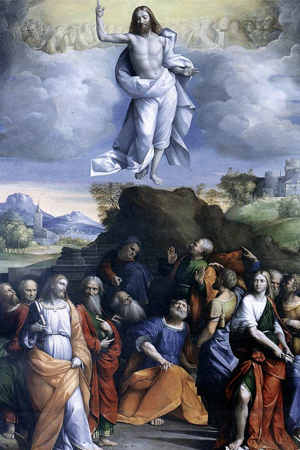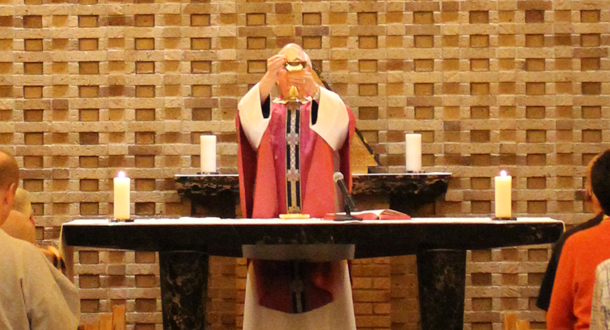Scripture:
Acts 1:1-11
Ephesians 1:17-23
Luke 24:46-53
Reflection:

The scene for today’s Gospel is the town of Bethany where Jesus gives his final words to the disciples—a reminder of the saving power of His death and resurrection and the promise of the gift of the Holy Spirit. He blesses them one last time and is gone from their sight. Luke tells us that the disciples returned to Jerusalem with great joy and preached daily in the temple. What a change from Good Friday when most of the disciples hid in fear and shame!
How does the Ascension fit into the stories of Easter and Pentecost? This is the completion of the miracle which began with the incarnation and birth of Jesus. God came to earth as man and now God and man returns to heaven. For all eternity, this fully divine, fully human person is part of the Trinity. The Ascension is not about escaping Earth but uniting heaven and Earth in a new reality where our humanity is fulfilled in God.
The Ascension is also a call to action. After Jesus is gone, two men appear and ask the disciples why they are standing there looking at the sky. The time for standing is finished. The time for the mission has come. The disciples must now carry on the ministry that Jesus began on earth. We, too, on this feast of the Ascension, are called to mission: to get busy uniting heaven and earth! If that call seems overwhelming, remember that, like the disciples, we will find our strength in the gift of the Holy Spirit.
Mike Owens is the coordinator of the Passionist Alumni Association and a member of the Migration Commission of Holy Cross Province. He lives in Louisville, Kentucky.







